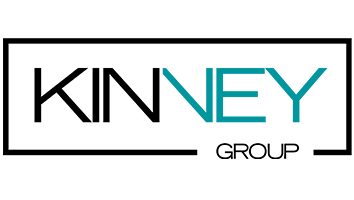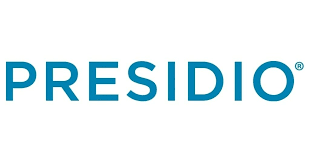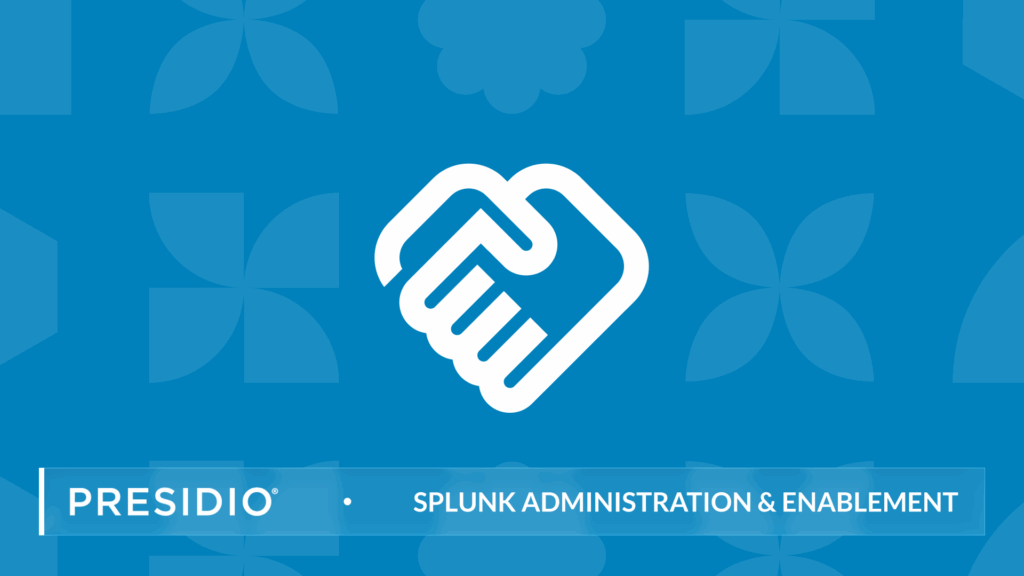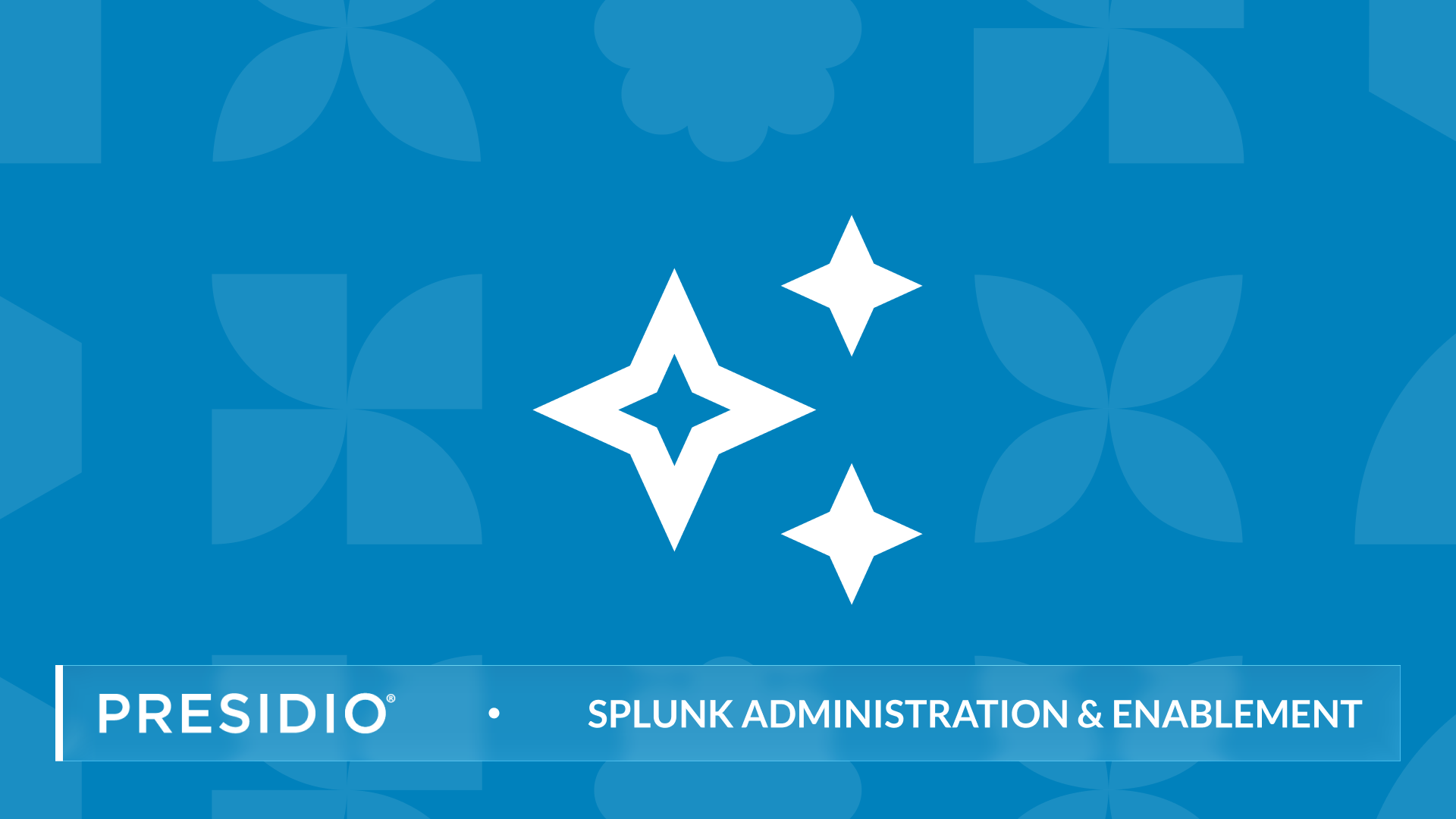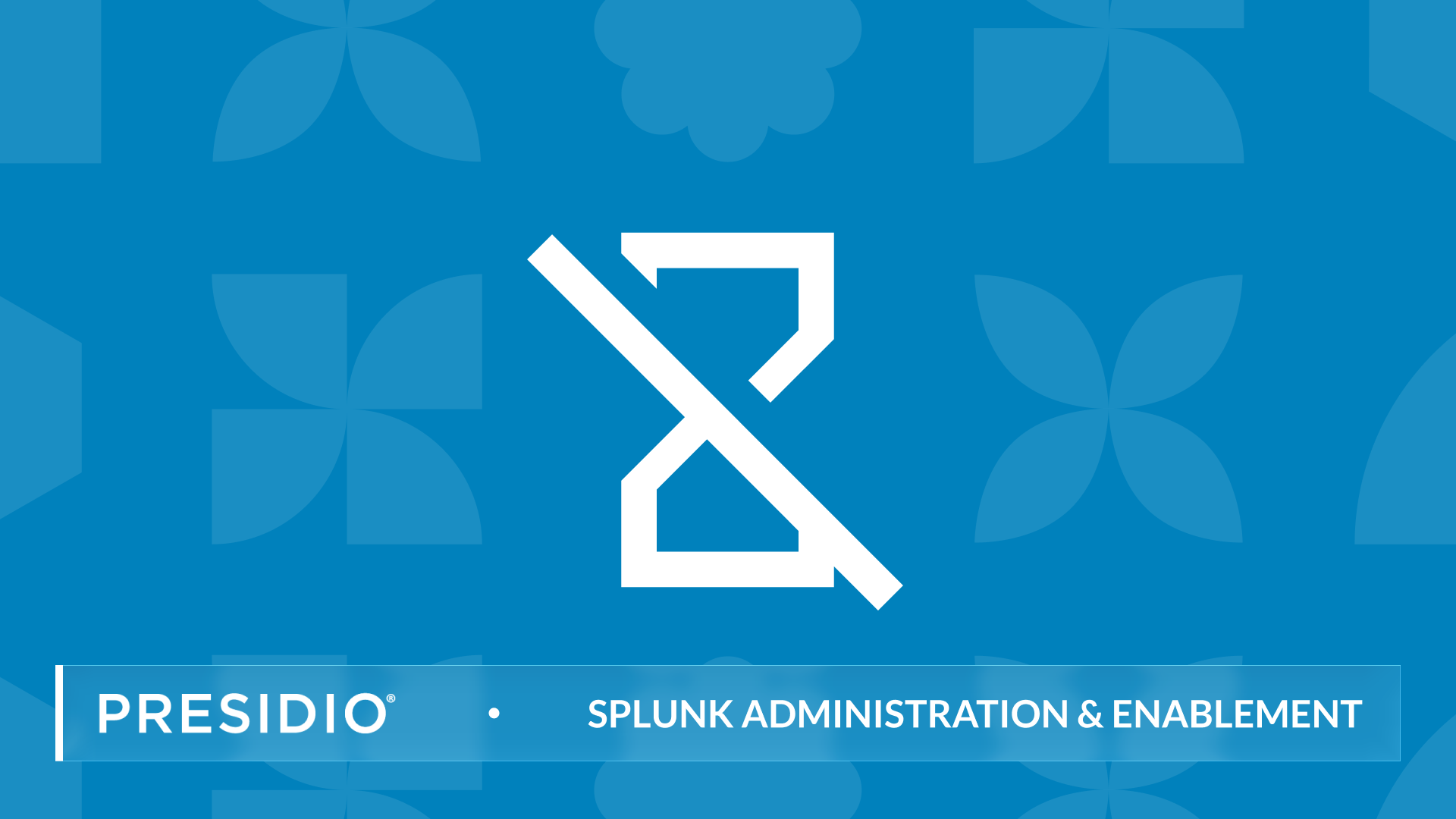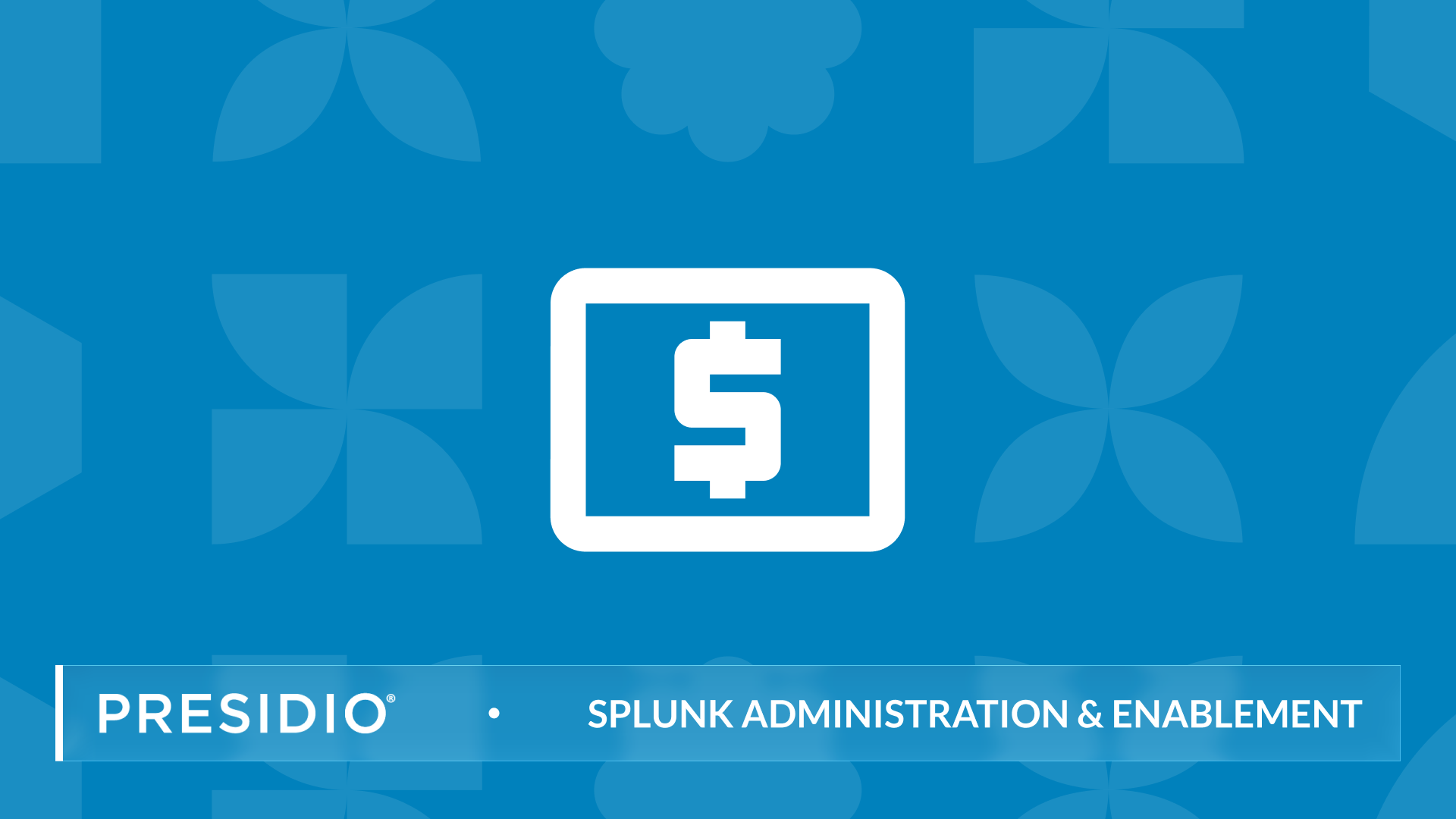If Only Everyone Could Use Splunk Like You Do
Splunk is a powerhouse. It can unlock operational intelligence, accelerate investigations, and drive real-time insights across your business. But too often, that power is limited to a small group of users who know the system deeply.
In most organizations, Splunk usage depends on a handful of experts. These power users build dashboards, write searches, onboard others, and fix problems. Everyone else either waits for help, files tickets, or avoids Splunk entirely.
The result is a slow and frustrating experience for non-experts. Power users get overloaded. Projects stall. Opportunities are missed.
This post walks through how the Atlas platform helps make Splunk accessible for your whole team, without reducing quality or adding more work for admins.
Splunk is too Complex. What Tools Make it Easier to Use?
Splunk is not known for being beginner friendly. Its terminology, UI, and SPL syntax make it difficult to learn. For new or occasional users, the learning curve is steep. For admins, this creates constant pressure to explain, support, and fix.
Admins can leverage built-in Splunk tools to help bridge this gap. By making dashboards that reveal what indexes the user has access to, and on-click drilldowns to further explore the data, Splunk admins can start teaching users how to navigate their data.
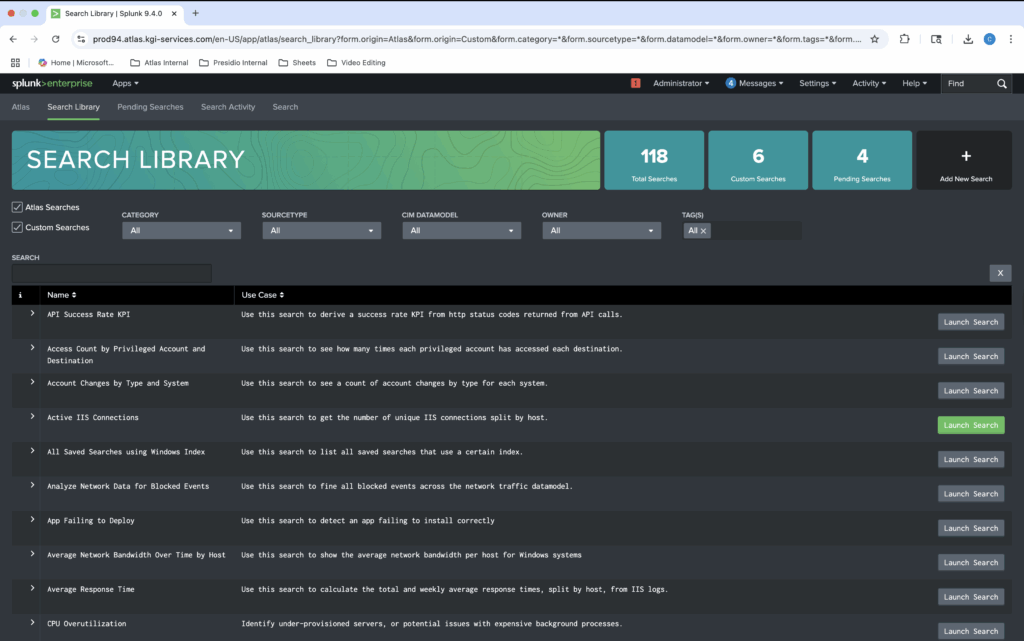
Atlas in action: When a user says “Splunk is too complex. What tools make it easier to use?”, Atlas provides a structured and usable experience leveraging the Search Library, which offers prebuilt, documented searches that reduce guesswork. Admins can add and approve tested searches to the library to start building an on-demand catalogue of searches.
How can I Make Splunk Easier for New Team Members to Use?
New hires often struggle with Splunk for weeks before they can contribute. Admins spend time showing them the ropes instead of managing the platform. That’s not scalable, nor does it give new users a great impression of Splunk.
Admins should prioritize hands-on time with users for onboarding. While online resources and AI assistance are helpful, users should be aware of the best practices unique to their environment. Admins should think about hosting office hours to assist with tough questions, or even open up internal chat rooms so users are properly supported.
Atlas in action: When someone asks, “How can I onboard users to Splunk?”, Atlas Expertise On Demand offers a way forward. Expertise on Demand is fractional support that can guide new users from Splunk basics all the way to advanced use cases. Expertise on Demand will take training off your admin’s hands and help kick-start your department’s Splunk Journey, while ensuring your new users follow best practices.
What are Some Tools to Help Me Manage Splunk More Efficiently?
Splunk admins are often buried in tasks. They manage permissions, optimize searches, clean up dashboards, and respond to constant user requests. It’s hard to stay ahead of the backlog. The less time Admins have to spend on fixing and investigating issues, the more time they can spend supporting users and achieving outcomes on the platform.
Admins should be fully aware of the Monitoring Console, which gives great insights into the current health of the environment and errors. Admins should also investigate the Cloud Workload Management system, which can automate the management of user search behaviors, preventing bad SPL from being executed.
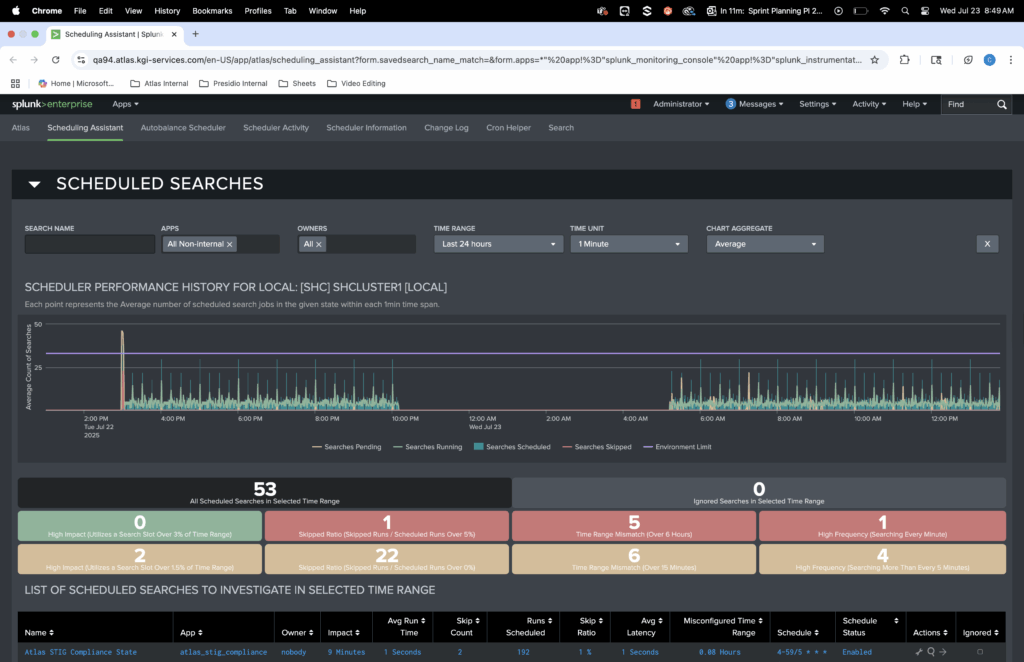
Atlas in action: When an admin asks, “What are some tools to help me manage Splunk more efficiently?”, Atlas steps in with:
- Scheduling Assistant: a purpose-built tool to triage skipped searches and poorly scheduled alerts
- Splunk Performance & Capacity Analytics: a collection of dashboards that provides a single view into your environment
- Monitor: the best tool for tracking data outages quickly and visually.
Atlas makes it easier to maintain a clean, well-functioning Splunk environment. Admins get more control, better insight, and less manual effort.
Make Splunk Work for the Whole Team, Not Just the Experts
Splunk does not need to be a gated experience. With Atlas, everyone on your team can explore, build, and analyze with confidence. Power users are still empowered, but they are no longer the only ones driving value from the platform.
Atlas helps you unlock Splunk for everyone while making life better for the people managing it.
